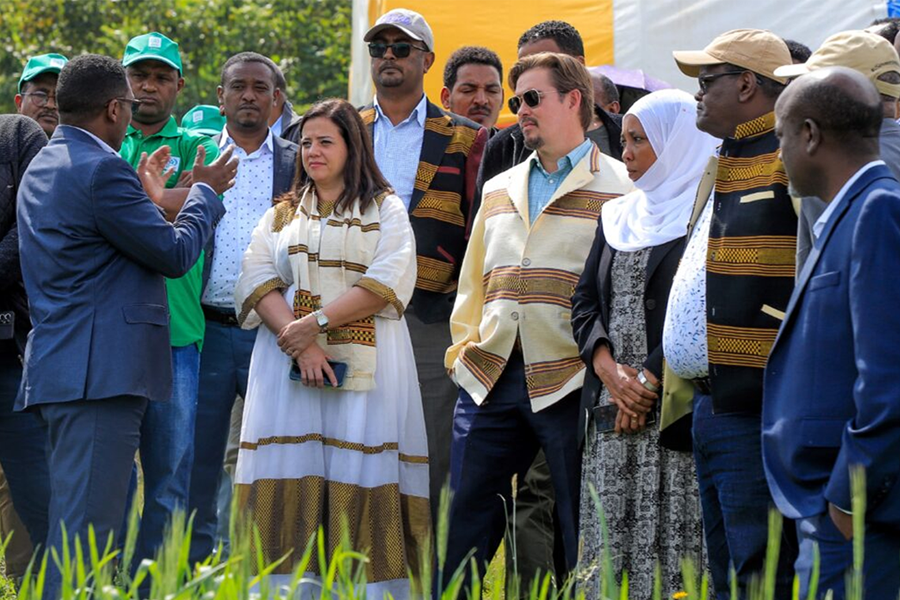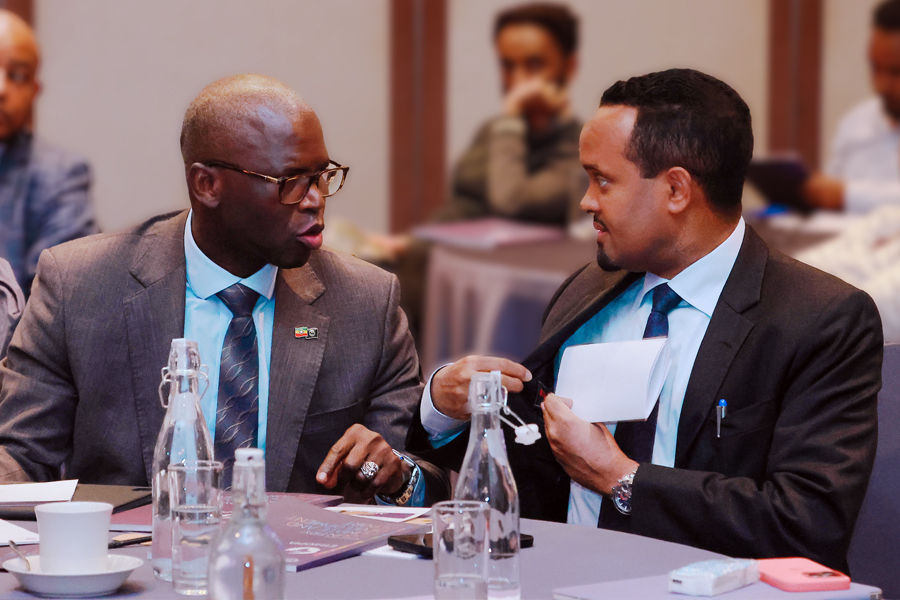
Fortune News | Aug 12,2023
The stakes of the upcoming U.S. election extend far beyond America’s borders, rippling across continents already destabilised by growing conflicts. As the world watches, America’s polarising campaign season—accusations, ideological clashes and an assassination attempt on Donald Trump—has laid bare deep societal fractures in a country that once championed democracy and unity. The outcome in November will resonate through conflict zones, shaping strategies and alliances in the Middle East, Europe, and Africa, underscoring the interconnectedness of today’s geopolitical space.
This year's U.S. election arrives amid unprecedented global turmoil, where the world seems closer to the brink of catastrophe than ever before. Long-standing tensions between Israel and Iran have spiralled into confrontation, escalating a longstanding standoff into a conflict with missiles and airstrikes, turning international concern into deepening alarm over the possibility of all-out war. Hezbollah, too, has joined the fray from Lebanon, sparking further violence and disruption in a region already on edge. Even the Houthis in Yemen, relegated to the peripheries of Middle Eastern conflicts, have joined with retaliatory strikes, demonstrating how far the conflict’s reach may yet extend. No country in the region—and perhaps none in the world—is truly immune from its impact.
Meanwhile, in Eastern Europe, the gruelling conflict between Russia and Ukraine continues to claim lives and test the resolve of the global community. As Western nations ramp up their support for Ukraine, old Cold War lines are being redrawn, a grim reminder of past ideological divisions thought long buried. The aspirations of the 1990s, when those like me believed that large-scale ideological wars had finally ended, now seem like relics of a more optimistic era. Instead, today’s divisions seem deeper and more entrenched, as ideological and territorial lines flare back to life.
Advances in military technology have only magnified the stakes, heightening the spectre of a modern world war unlike any seen before. Nuclear and cyber capabilities mean that any escalation could lead to unimaginable consequences, far surpassing even the devastation wrought in Hiroshima and Nagasaki. Former U.S. President Donald Trump, no stranger to rhetorical hyperbole, has remarked that the world hasn’t been this close to global conflict in decades—a statement that, while charged, underscores the terrifying potential of our current geopolitical climate.
For Ethiopia, these global tensions are a reminder of how interconnected the world has become and of the country’s vulnerability to shifting global dynamics. Regional proximity to the Middle East heightens the risk of involvement, intentional or incidental, as power struggles escalate across borders. Long-standing issues at home, from civil conflicts to resource disputes, mean the country has no shortage of its challenges, which external conflicts can only exacerbate. History shows that the cycle of conflict repeats, often with new players but with old, unresolved tensions. Tragically, it is often only after loss that peace negotiations even begin—too little, too late for the lives disrupted.
Economic impacts of global conflict have become increasingly clear, from volatile energy markets to disruptions in trade and food security. The Ukraine crisis alone has spotlighted the fragility of global supply chains, with wheat exports deeply affected by the ongoing strife, driving up prices and leaving many countries scrambling to secure food resources. Ethiopia has worked to achieve some degree of self-sufficiency in wheat, softening the blow, but global interdependence remains undeniable. In the energy sector, oil prices soar and fall with every tremor in the Middle East. Closer to home, Sudan’s ongoing turmoil adds layers of uncertainty for Ethiopia and other neighbouring countries.
In the digital sphere, warfare has transformed beyond recognition, with cyberattacks and drones representing the new face of conflict. This new era of remote warfare where governments can cripple adversaries without setting foot poses unsettling questions about the future of global security.
As the United States nears a defining election, the world holds its breath. The decisions made by American voters will ripple through far-reaching channels, impacting not only domestic policy but the strategic calculus of nations locked in their struggles. A country that once stood as a beacon of freedom now grapples with the same fractures seen globally: competing ideologies, entrenched divisions, and a media landscape that has increasingly adopted open partisanship. This election cast in the shadow of a polarised media, where the boundaries between fact and propaganda blur are emblematic of the ideological battles being fought not just in America but worldwide.
As Guns N' Roses once sang in their haunting ballad, November Rain, “And it's hard to hold a candle in the cold November rain.” In this moment, that sentiment captures the fragile hope that, despite deepening rifts, humanity can still choose peace over division. As the shadows of conflict loom, the need for unity and understanding has never been more pressing. It may sound idealistic, but perhaps that is what we need now more than ever: the audacity to believe in peace, even in the coldest November.
PUBLISHED ON
Nov 02,2024 [ VOL
25 , NO
1279]


Commentaries | May 24,2025

My Opinion | Dec 19,2018

Radar | Oct 27,2024

Fortune News | Jul 15,2023

Fortune News | Mar 02,2024

Dec 22 , 2024 . By TIZITA SHEWAFERAW
Charged with transforming colossal state-owned enterprises into modern and competitiv...

Aug 18 , 2024 . By AKSAH ITALO
Although predictable Yonas Zerihun's job in the ride-hailing service is not immune to...

Jul 28 , 2024 . By TIZITA SHEWAFERAW
Unhabitual, perhaps too many, Samuel Gebreyohannes, 38, used to occasionally enjoy a couple of beers at breakfast. However, he recently swit...

Jul 13 , 2024 . By AKSAH ITALO
Investors who rely on tractors, trucks, and field vehicles for commuting, transporting commodities, and f...

Jun 28 , 2025
Meseret Damtie, the assertive auditor general, has never been shy about naming names...

Jun 21 , 2025
A well-worn adage says, “Budget is not destiny, but it is direction.” Examining t...

Jun 14 , 2025
Yet again, the Horn of Africa is bracing for trouble. A region already frayed by wars...

Jun 7 , 2025
Few promises shine brighter in Addis Abeba than the pledge of a roof for every family...